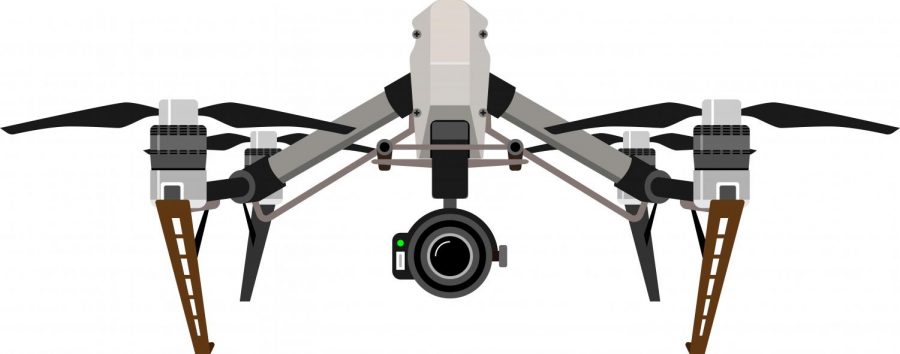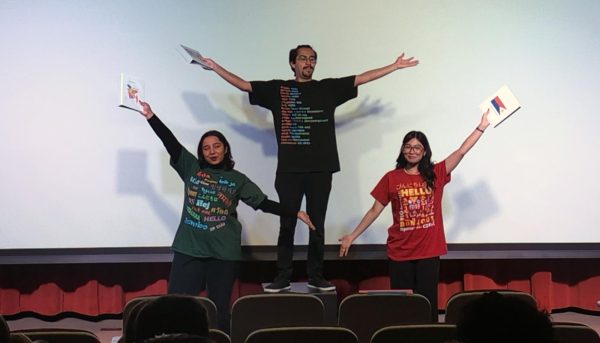Career Opportunities With Drones
Grossmont holds “Careers in the Drone Industry” panel with experts in the drone aviation industry.
December 7, 2020
On Dec. 2 Grossmont College’s Drone Technology Program set up a panel to peak student-interest in the drone aviation industry. The virtual panel featured three entrepreneurs of different backgrounds telling of their time in the industry.
Skip Fredricks, instructs part-time at Grossmont’s drone program and holds a lengthy background in Hollywood and other media outlets, having won several awards. At a trade-show in 2013, he was introduced to some of the first drones on the market.
Back then, he said drones didn’t have cameras and were “bare-bones” compared to what they are now.
“Drone years are like dog years,” Fredricks explained. His decision to put GoPros on drones and start using them for cinematography being an early adopter of the new technology.
Sharon Rossmark, the CEO of Women and Drones limited liability company, strives to increase female participation in the drone aviation industry. She became interested in the industry six years ago after attending a presentation by college students showing how drones could be used for agriculture.
For her, that is when the lightbulb turned on. “I get it…this is our future,” Rossmark remarked. After that day, she made a career-switch and hasn’t looked back since.
The last speaker, alumni RoseAnn Denton completed the drone program at Grossmont. She has since started her own LLC called “She Drones”. Her introduction into the industry began with the need to separate herself from the rest of the competition as she was trying to find a means of living for photography.
That’s when she noticed the drone program at Grossmont, becoming enthusiastic about the industry and making new connections with experts like Fredricks.
The panelists were asked about their thoughts on the industry and gave compelling reasons as to why a career in drone aviation is the future. Perhaps the biggest reason is that it’s a young industry and the current COVID-19 pandemic has made the demand for drones even more necessary.
“It brings that unique value proposition of offering almost any industry the capability of reducing cost and saving lives,” Rossmark said. Her example was that the technology keeps workers out of hazardous zones. It is also one of the fastest-growing categories of aviation in the field. These opportunities open the door for women in science, technology, engineering and mathematics fields.
It’s an industry that has the potential to branch out into other fields. Fredricks said that his drone business has expanded from just media. Evolving into the solar, building, and real estate inspection.
He has used these expansions to interest students in different sectors of the industry. Different revenue streams are almost immediately available once they graduate the course,” Fredricks said.
The panelists insisted that the drone program at Grossmont is one of the best opportunities to find a niche as it’s a developing industry. Denton has been able to embrace this niche-industry in real estate but continues going to school and networking. She now wants to expand into the landscape, construction and architectural firms.
This doesn’t mean that there are no challenges to this industry. As new as it is, there is a lot of competition–both from start-up businesses and gig-economy companies that all want a slice of the pie.
In this industry, if you’re not with the latest technology then you’re behind. “Where we are today versus where we were six years ago is light-years,”Rossmark said. For her, it’s a balancing act of staying on top of the curve while still keeping her business moving steadily.
Even drones from two years ago are “obsolete” according to Fredricks, who compared buying new drones to buying a new phone.
Fredricks said there is new drone technology, “every seven or eight months.” So there’s a cost associated with how fast the technology changes, new regulations and public perception.
Both understand the need for regulation but admitted regulations were slowing down the industry. Fredricks is mindful of the public’s perception. He refers to the “uninformed that think you are spying on them” but there are also people who want to “open the skies” to everybody which is where regulations are doing their job.
The drone industry is evolving and growing as demonstrated by the discussions in this panel. If you’re interested in more information you can RSVP to the Drone Technology Program Information Session on Dec.10, but no worries because there are several other dates you can attend.
If you’re interested in the program you can email [email protected] or check out https://www.grossmont.edu/academics/programs/drone/. You never know, it might be worth looking into and maybe you can find your niche career opportunity.














